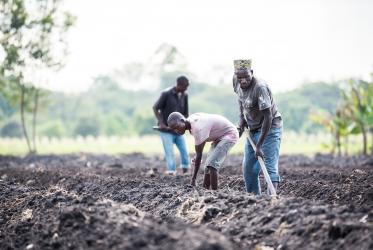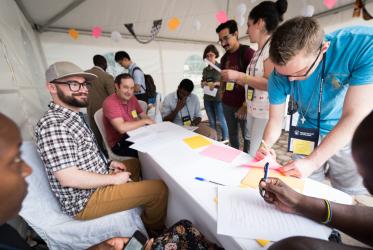Displaying 1 - 15 of 15
WCC condemns massacre of farmers in Philippines
12 April 2019
All pilgrim routes lead to COP24
11 December 2018
‘Sokoni’ transforms marketplace into mission
13 March 2018
GETI students plant trees, in service for greener future
07 March 2018
“Overcoming economic injustice” vision of WCC’s Athena Peralta
23 February 2017
Consultation considers right to food in context of climate change
15 December 2015
Land rights focus of panel discussion
17 November 2015
Climate pilgrimage toward COP21 pauses in Geneva
05 November 2015
Churches engage in development dialogue on Africa
06 March 2013










